18 Free Artificial Intelligence Courses
These should help you build a foundation (and beyond).
Morning y’all!
If you’re live in the US then you already know that the “polar vortex” is upon us and it’s causing a bit of havoc with power, travel, and more — so stay warm! I’m snuggled under a big blanket but I probably should wear a bit more layers as well. 🥶
And I’m particularly excited because I’ve started to write a series of posts that should have a fairly boring title like “AI for Dummies” or “Artificial Intelligence 101” that I hope to get done this week — it’ll be exceedingly useful for folks who are just entering into the space or even your friends and family who aren’t entirely sure where to start!
If this is of interest then you’ll see it in your inbox shortly! Make sure to let others know, especially for folks in your community who might need a primer. This is especially important because AI is going to impact everyone’s job and the more you’re prepared for it, the better.
We know it’s already impacted hiring and a recent study showcases data that 40% of jobs will be hit (as of today):
The findings are indeed “striking”:
Almost 40 percent of global employment is exposed to AI. Historically, automation and information technology have tended to affect routine tasks, but one of the things that sets AI apart is its ability to impact high-skilled jobs. As a result, advanced economies face greater risks from AI—but also more opportunities to leverage its benefits—compared with emerging market and developing economies.
It’s time to get on this boat or it’s going to leave you behind! I want you all to win so I’m going to do my part and help as much as I can! Thank you for subscribing and being part of this very early community! Appreciate it!
✌(-‿-)✌
— Summer
18 Free Artificial Intelligence Courses
When I first started venturing into AI and, more specifically, Generative AI, I took my usual approach by starting with a novice-mindset because I try not to bring in my built-in (trained?) biases that may limit my ability to learn the ropes from a fundamental perspective.
Consequently, I devoured everything that I could with the presumption that I could learn things quickly given my (technical) background but assuming nothing about what I could learn. There weren’t that many courses or foundational pieces of basic literature outside the more research-y type of readings but overtime as more and more folks joined they started to crop up.
Well, here are 18 AI / ML courses that are entirely free to use! My criteria beyond free was that they had to have high ratings (via community voting or completion rates) or from well-known, trusted institutions / organizations (e.g. Helsinki University, Stanford University, Google, Microsoft, etc.).
Feel free to pass this along to folks that you know as well!
Have fun and good luck!
Elements of AI can be learned here and here. What you’ll learn:
The Elements of AI is a series of free online courses created by MinnaLearn and the University of Helsinki. We want to encourage as broad a group of people as possible to learn what AI is, what can (and can’t) be done with AI, and how to start creating AI methods.
The courses combine theory with practical exercises and can be completed at your own pace — enjoy!
Introduction to Artificial Intelligence can be learned via Udemy. The overview:
This course considered a start point for everyone who is interested to understand and get an overview about AI, and most of its concepts; techniques are explained without the need of any coding/programming skills or background.
There are a handful of other Udemy courses that might be interesting as well, such as this one about Preparing Your Career for AI. In this free course, you’ll learn the five things you should be doing today to prepare your career for the coming wave of AI-enabled automation.
Educate yourself about AI
Upgrade your career for AI
Invest in an AI-first economy
Use AI ethically and responsibly
Adapt to what comes next
Here’s a non-technical course that focuses on AI / ML / DL-minded folks:
1. What are prerequisites for learning AI?
2. What is Road map to start Machine learning project(ML)
3. How to choose the best programming language for AI?
4. How much Mathematical knowledge needed for AI?
5. Which is the best AI Engine/Tool/Framework for AI?
And more! I’m trying to only highlight the ones that have the highest ratings so that you’re not stuck with mid-tier content.
Here’s one specifically for ChatGPT and its many use-cases:
Discover the capabilities of ChatGPT for a business point of view
Discover the capabilities of ChatGPT for a personal point of view
The best tips to use ChatGPT effectively
How to make money while using ChatGPT to do the work for you
How to use ChatGPT to create passive income streams
How to skyrocket your current business using ChatGPT and AI
Speed up your content creation process
Use ChatGPT in your daily life (meal prep, pocket coach...)
Save you a lot of time & energy with ChatGPT in every aspect
ChatGPT has quickly become an app that I use daily and I’m still surprised by how useful it is even for the smallest and most mundane tasks.
If you’re a designer or want to learn how to use these image-generation services a bit better then this course might be a good start with an appropriate title of “Midjourney & ChatGPT: Unleasing AI for Unique Image Generation.” Here’s the course overview:
Are you a graphic designer, entrepreneur, or content creator looking for a game-changing tool to elevate your visuals? Do you want to create eye-catching images without spending countless hours in design software? Look no further! Our Midjourney Mastery course is here to help you harness the power of AI-generated images and transform your creative process.
Here’s what you stand to learn:
Create unique images in seconds using Midjourney AI.
Master the Midjourney platform and its advanced features.
Create unique and engaging visuals for marketing campaigns, social media, and more.
Develop captivating business concepts using AI-generated images.
Save time, reduce costs, and boost your productivity.
Identify the various applications and uses of Midjourney in image generation.
Master the use of parameters, prompts, and advanced options for generating custom images.
Develop a comprehensive business concept using Midjourney, including product images, photographs, website ideas, and logos.
Utilize advanced tools and tips to create more effective and engaging prompts for image generation.
Combine different prompt combinations to achieve unique and visually appealing outcomes.
Apply the knowledge and skills acquired in the course to real-life Midjourney scenarios and projects.
Adapt their Midjourney expertise to various professional and creative contexts.
It’s pretty comprehensive and will definitely get you pointed in the right direction. But make sure you continue to personally experiment since so many of these tools simply require practice, practice, and more practice.
This course is for a bit more technically-inclined and experienced: ChatGPT API and Llama 2 Model for beginners. Here’s the course overview:
Are you ready to take your programming skills to the next level? If you're looking to learn how to create a react native chatbot mobile app that uses the API from OpenAI for interactions, then the Getting Started with ChatGPT API Udemy Course is perfect for you! In this course, you'll learn everything you need to know about building a chatbot app using ChatGPT API, from setting up your development environment to creating interactive features. Let's take a closer look at what you can expect from this course.
Again, this will assume that you have some prior technical knowledge and foundation to get started quickly:
Integrate the ChatGPT API to your Nodejs project
Create a mobile app with React Native
Configure the parameters of the ChatGPT API
Use expo to test the React Native mobile application
Create a chatbot using the Llama 2 model
Use NextJS, TailwindCSS to create a chatbot web application
Deploy large language models on your local computer
There’s so many great things to build!
For the educator this might be a great place to start:
Welcome to our course on using modern artificial intelligence to automate teacher administrative tasks. Are you tired of spending countless hours on lesson planning, creating test questions, providing student feedback, and marking assignments? In this course, we will show you how to use tools like OpenAI's ChatGPT to drastically reduce your workload and free up your time for more important tasks.
We will explore a variety of AI-powered solutions that can assist with various administrative tasks, including lesson planning, writing emails to parents, creating test questions (both multiple-choice and extended-answer/essay), writing cover letters, writing emails to colleagues, differentiating your lessons by providing scaffolded activities, writing summaries of professional reading sources for your own growth and development, providing personalised feedback to students, and even marking extended responses. This course is designed to be practical and hands-on, so you can start implementing these tools in your own teaching practice right away.
And for the course contents:
Learn different types of AI and how to use them as a teacher
Save you time each week on administrative tasks
Plan for the implications of Chat GPT on student assessment
Increase your creativity and professional writing ability as a teacher
As an educator myself I love seeing the developments and advancements in the education space — we are all teachers in our own way and this is the time to help others onboard into the future.
Heading back to the classes via The University of Helsinki, this more technical course is also free and should help you get a practical understanding of how to build:
Building AI a flexible online course for anyone who wants to learn about the practical methods that make artificial intelligence a reality. You will get a solid introduction to for example machine learning and neural networks, and you will learn where and how AI methods are applied in real life. It is easy to move freely between the three difficulty levels, from multiple choice exercises to programming with Python – depending on whether you know programming or not. As a result of this course, you will be able to craft your own AI idea and present it to the community. Doing the online course is free of charge, but you can purchase the Building AI certificate to reward yourself for the effort. The certificate will become available upon successful completion of the course.
It’s more than 50 hours of great coursework though! Good luck with that!
Google has a number of free “learning paths” and a handful of them are dedicated to Generative AI, machine learning, and developers.
Of course they will focus on showcasing their own cloud infrastructure but that’s a small price to pay for a free education. I generally don’t trust a lot of what Google does but they are helping to move the larger space forward so I can tone down my critique for the education just a bit. 😬
Naturally Microsoft has a free course for beginners and it’s not a bad start! Here’s the overview for you:
Explore the world of Artificial Intelligence (AI) with Microsoft's 12-week, 24-lesson curriculum! Dive into Symbolic AI, Neural Networks, Computer Vision, Natural Language Processing, and more. Hands-on lessons, quizzes, and labs enhance your learning. Perfect for beginners, this comprehensive guide, designed by experts, covers TensorFlow, PyTorch, and ethical AI principles.
And the course will contain the following things to learn:
Different approaches to Artificial Intelligence, including the "good old" symbolic approach with Knowledge Representation and reasoning (GOFAI).
Neural Networks and Deep Learning, which are at the core of modern AI. We will illustrate the concepts behind these important topics using code in two of the most popular frameworks - TensorFlow and PyTorch.
Neural Architectures for working with images and text. We will cover recent models but may lack a little bit on the state-of-the-art.
Less popular AI approaches, such as Genetic Algorithms and Multi-Agent Systems.
And like Google they will also center a lot of their material around their own cloud and architecture services.
Stanford University has a “Machine Learning Specialization” that is entirely free! Here’s your overview:
This 3-course Specialization is an updated and expanded version of Andrew Ng’s pioneering Machine Learning course. It provides a broad introduction to modern machine learning, including supervised learning (multiple linear regression, logistic regression, neural networks, and decision trees), unsupervised learning (clustering, dimensionality reduction, recommender systems), and some of the best practices used for artificial intelligence and machine learning innovation (evaluating and tuning models, taking a data-centric approach to improving performance, and more.)
Have fun with Andrew Ng!
Georgia Tech has 3 free AI-centric courses, specifically for instructors that you might find very useful:
Even if you’re not an educator you may find these exceedingly helpful.
Here’s a slightly different focus: Machine Learning for Musicians and Artists! It’s entirely free, of course:
Have you ever wanted to build a new musical instrument that responded to your gestures by making sound? Or create live visuals to accompany a dancer? Or create an interactive art installation that reacts to the movements or actions of an audience? If so, take this course!
In this course, students will learn fundamental machine learning techniques that can be used to make sense of human gesture, musical audio, and other real-time data. The focus will be on learning about algorithms, software tools, and best practices that can be immediately employed in creating new real-time systems in the arts.
And the syllabus:
What is machine learning?
Common types of machine learning for making sense of human actions and sensor data, with a focus on classification, regression, and segmentation
The “machine learning pipeline”: understanding how signals, features, algorithms, and models fit together, and how to select and configure each part of this pipeline to get good analysis results
Off-the-shelf tools for machine learning (e.g., Wekinator, Weka, GestureFollower)
Feature extraction and analysis techniques that are well-suited for music, dance, gaming, and visual art, especially for human motion analysis and audio analysis
How to connect your machine learning tools to common digital arts tools such as Max/MSP, PD, ChucK, Processing, Unity 3D, SuperCollider, OpenFrameworks
Introduction to cheap & easy sensing technologies that can be used as inputs to machine learning systems (e.g., Kinect, computer vision, hardware sensors, gaming controllers)
I’ve always believed that the best part of a video game and/or movie is the musical score as it really does help one become an intimate part of the experience.
That’s a wrap! Let me know if you find any other great courses that can help folks get started! And make sure they are free!
✌(-‿-)✌
— Summer





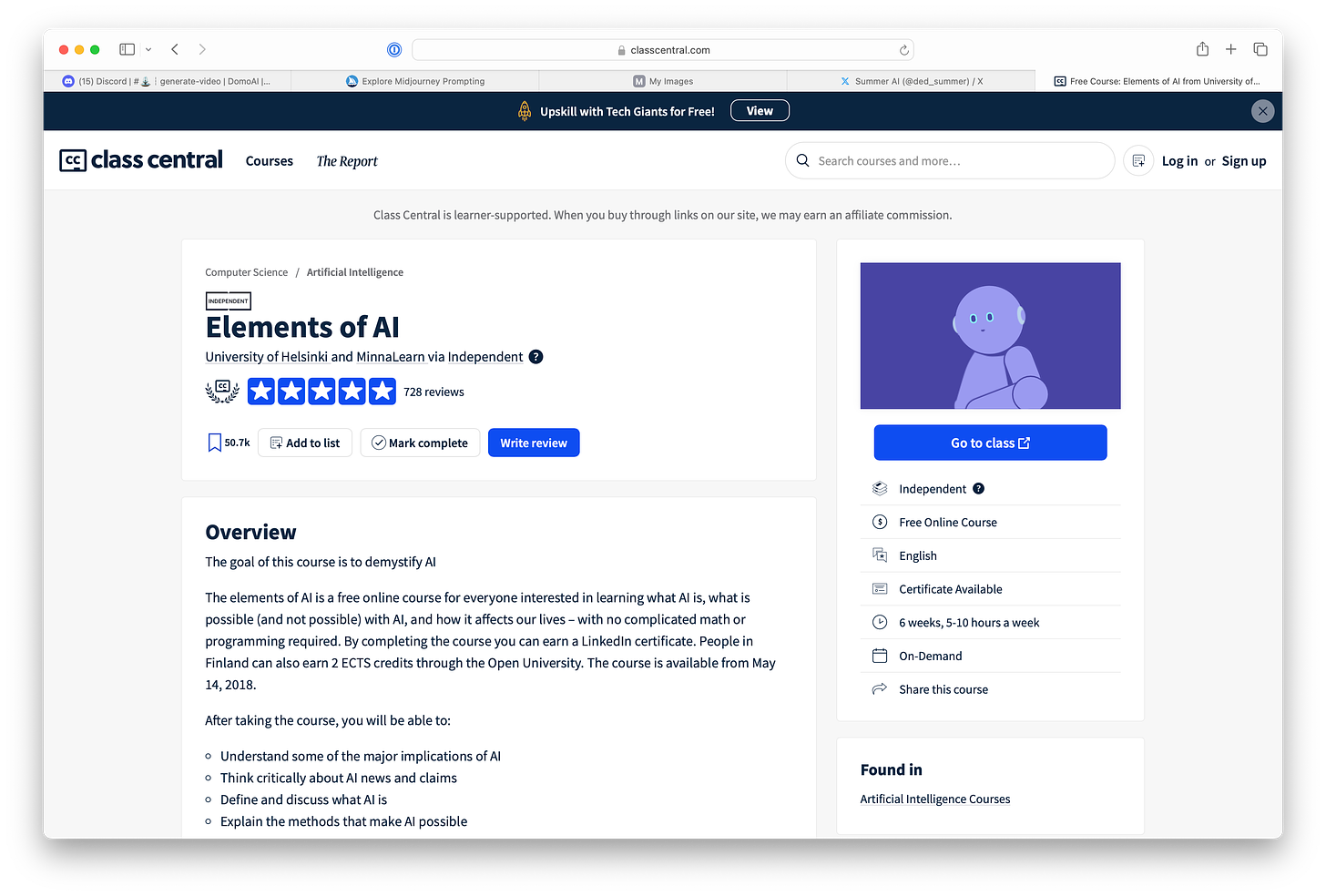
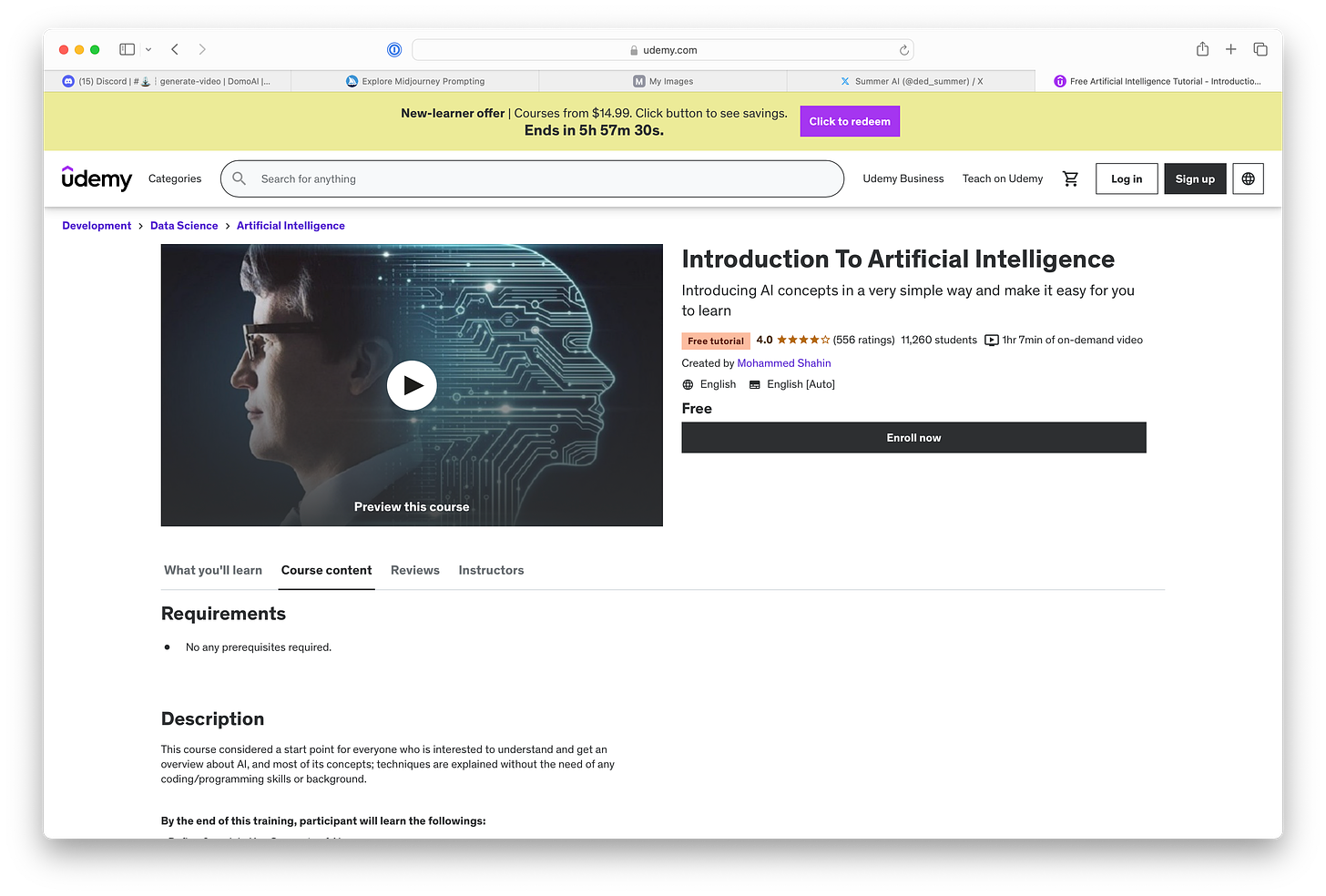

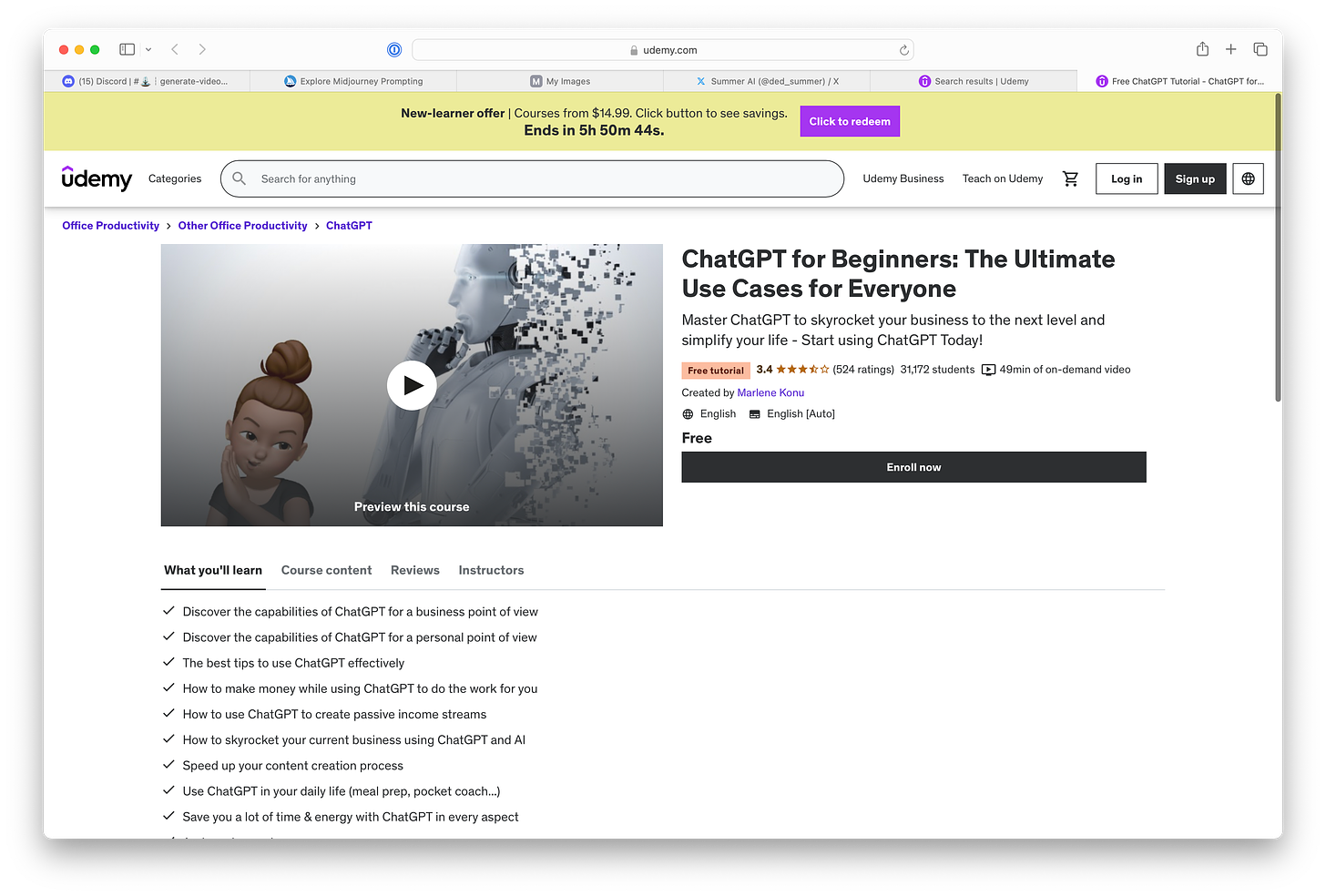
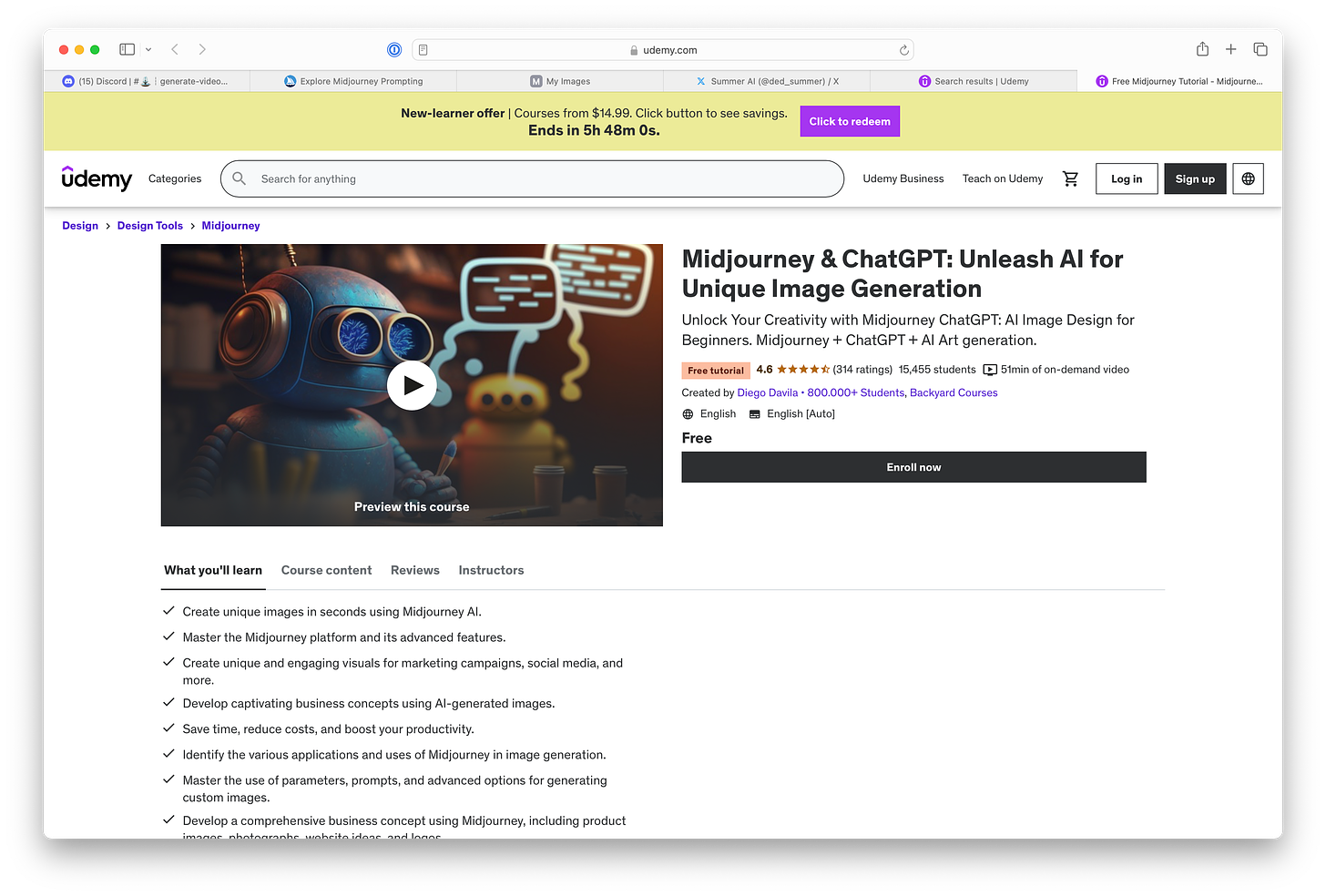


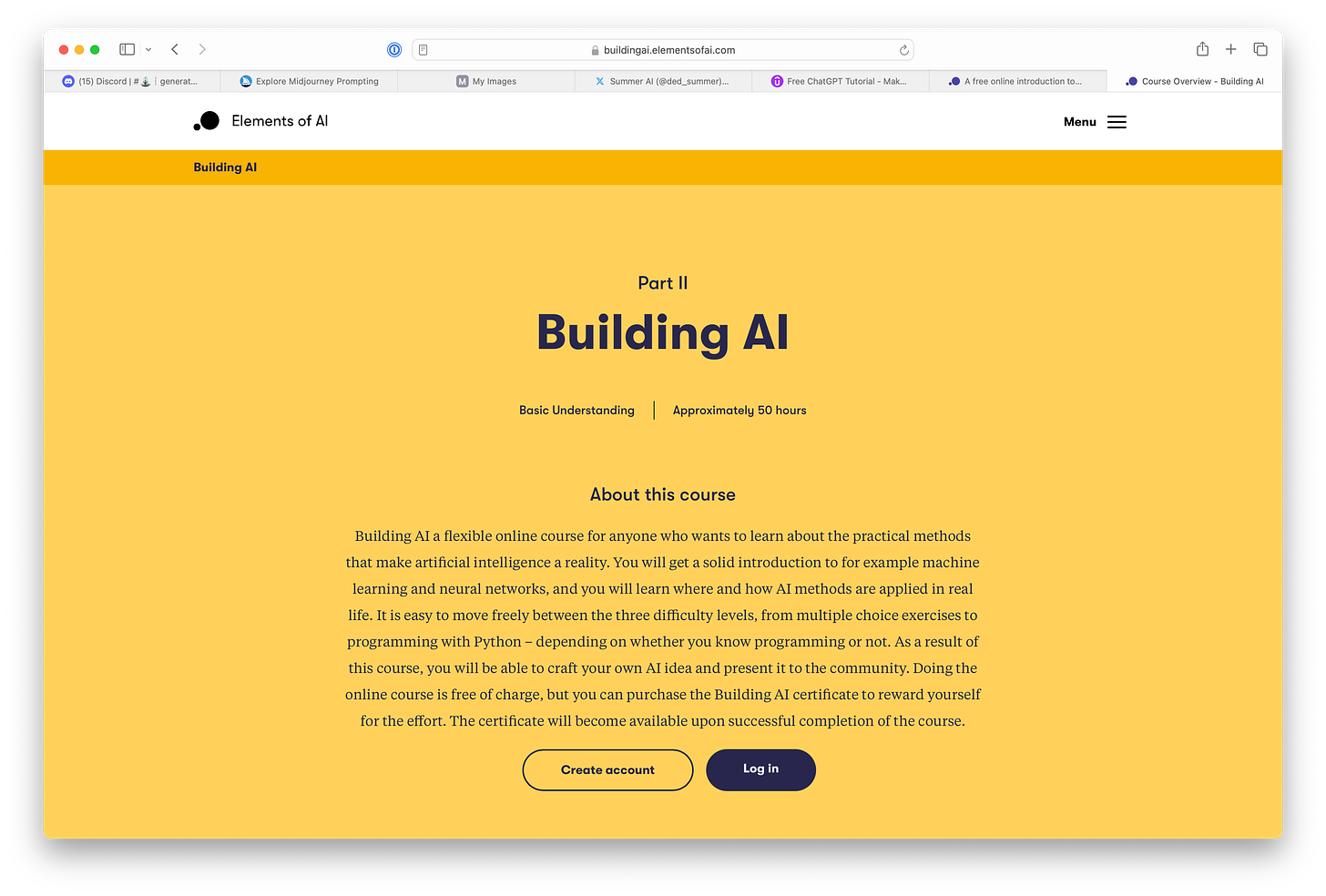
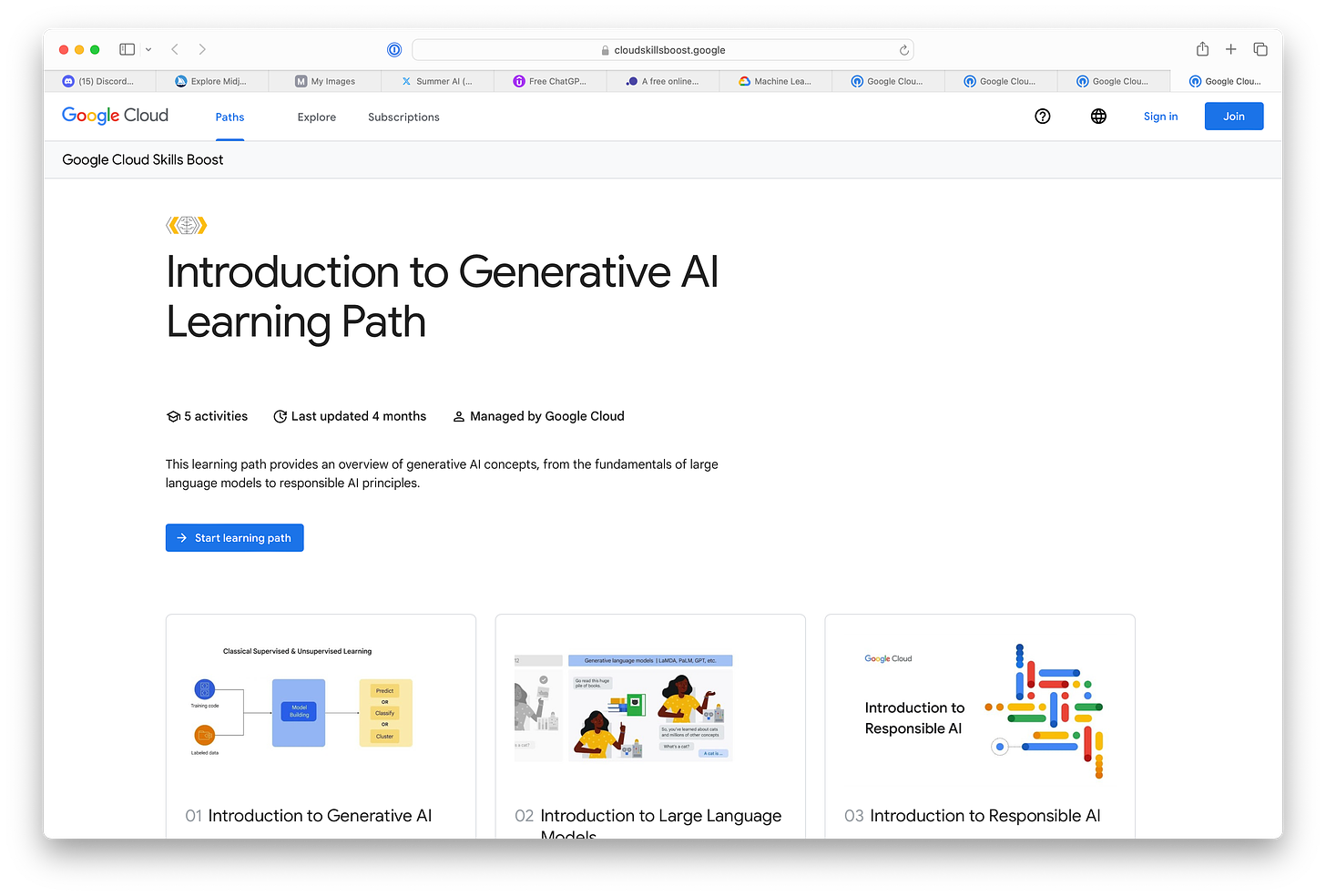
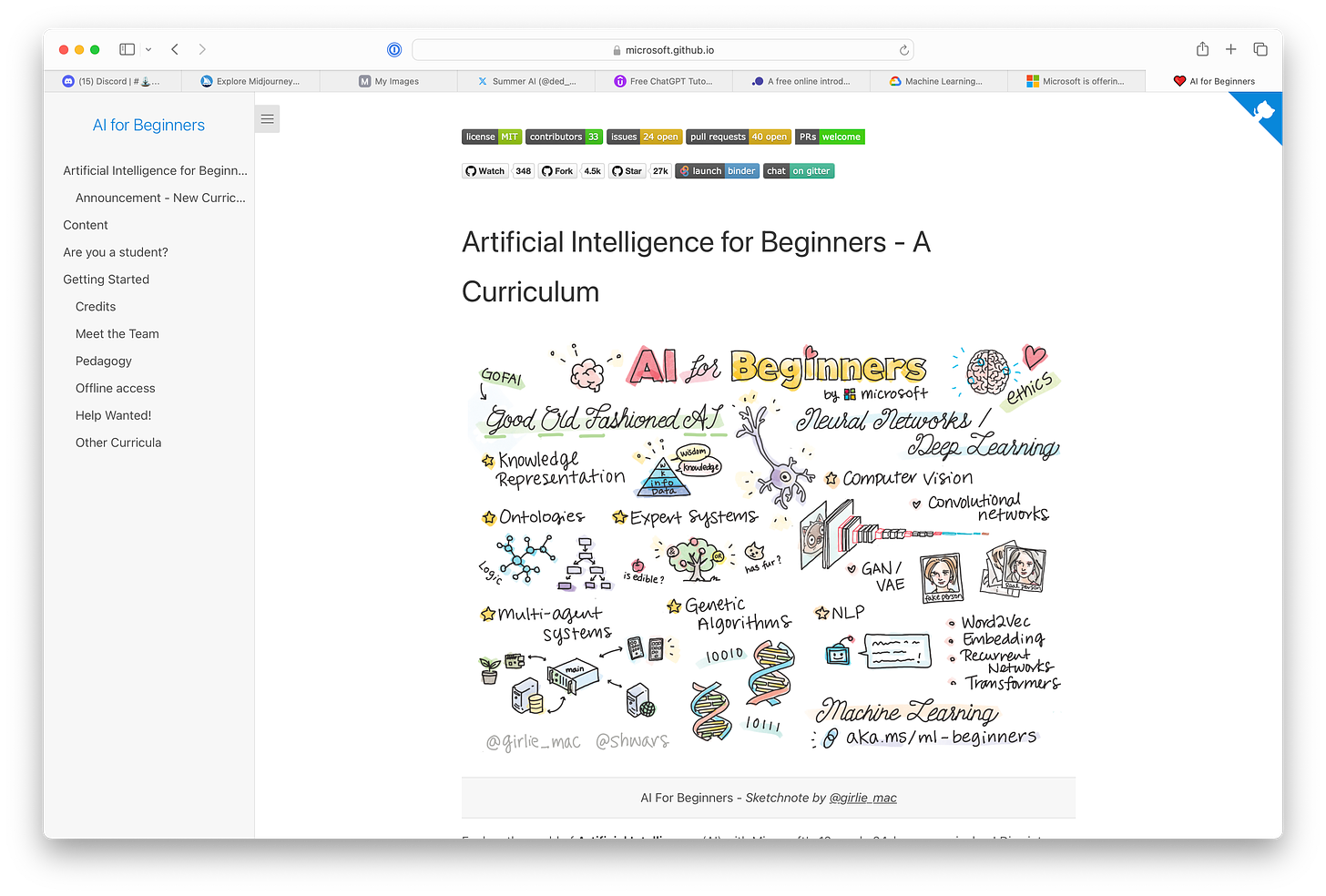
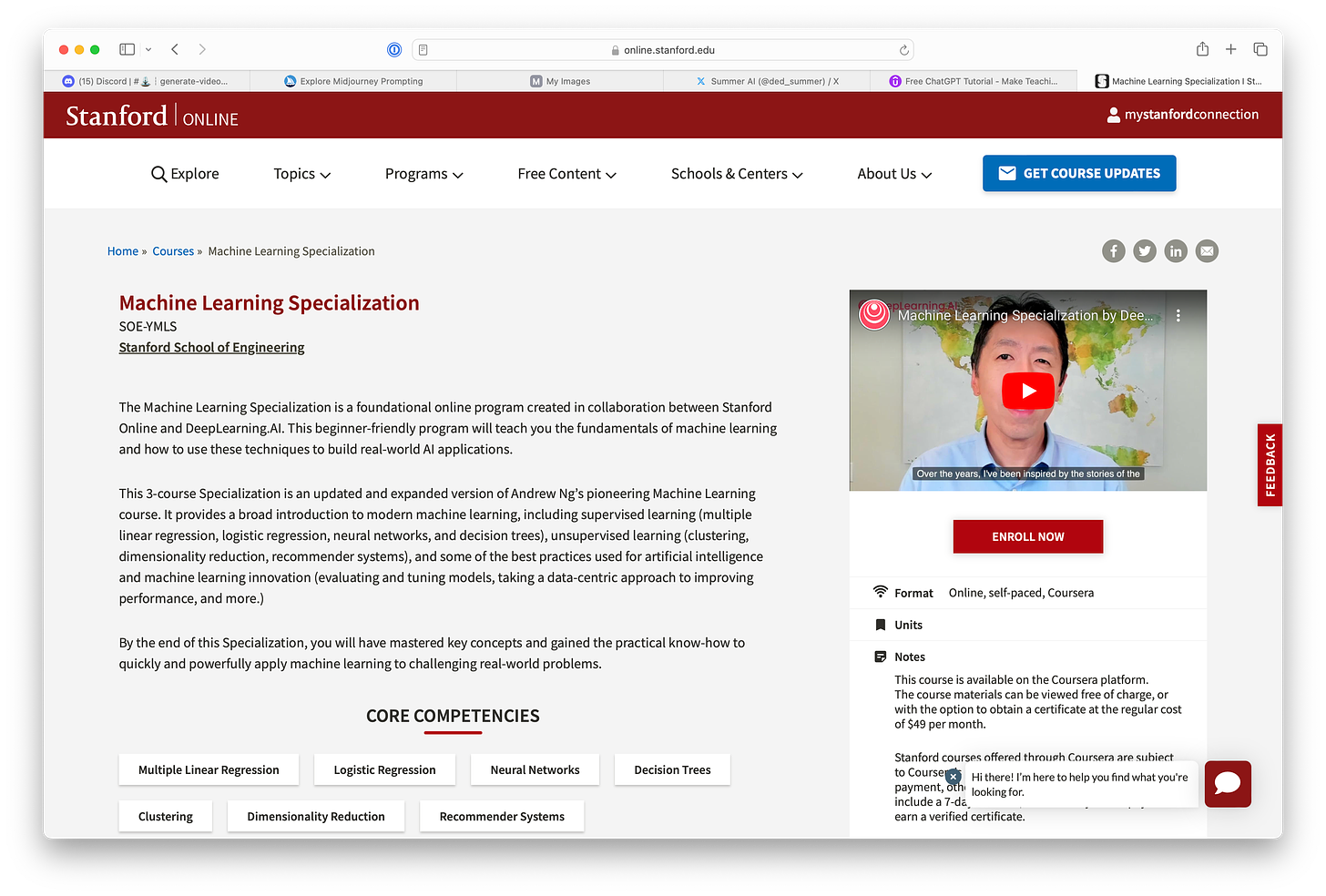
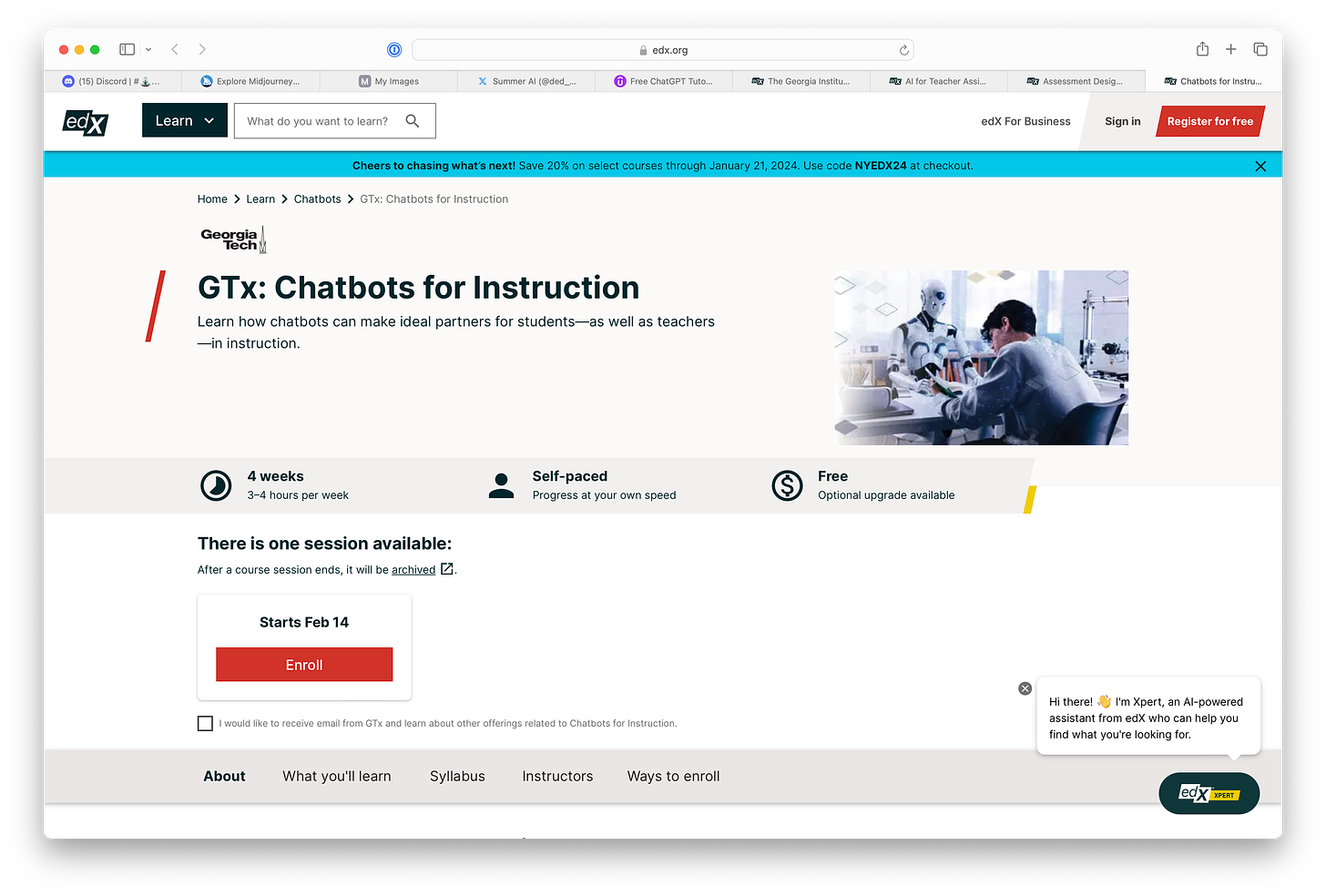
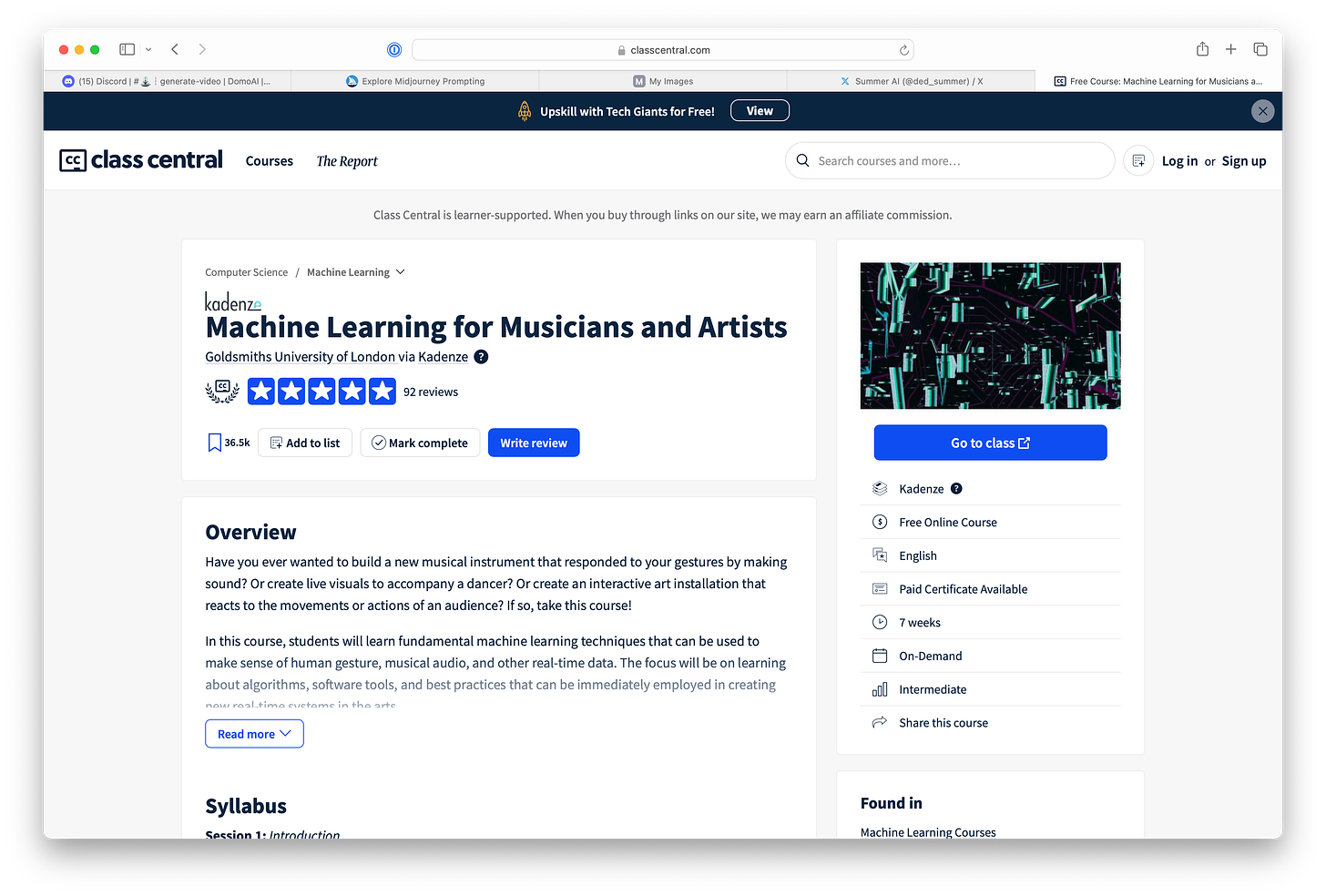
Top notch curation of resources. Elements of AI has my attention! If you were to choose one of these course, which one would you choose?